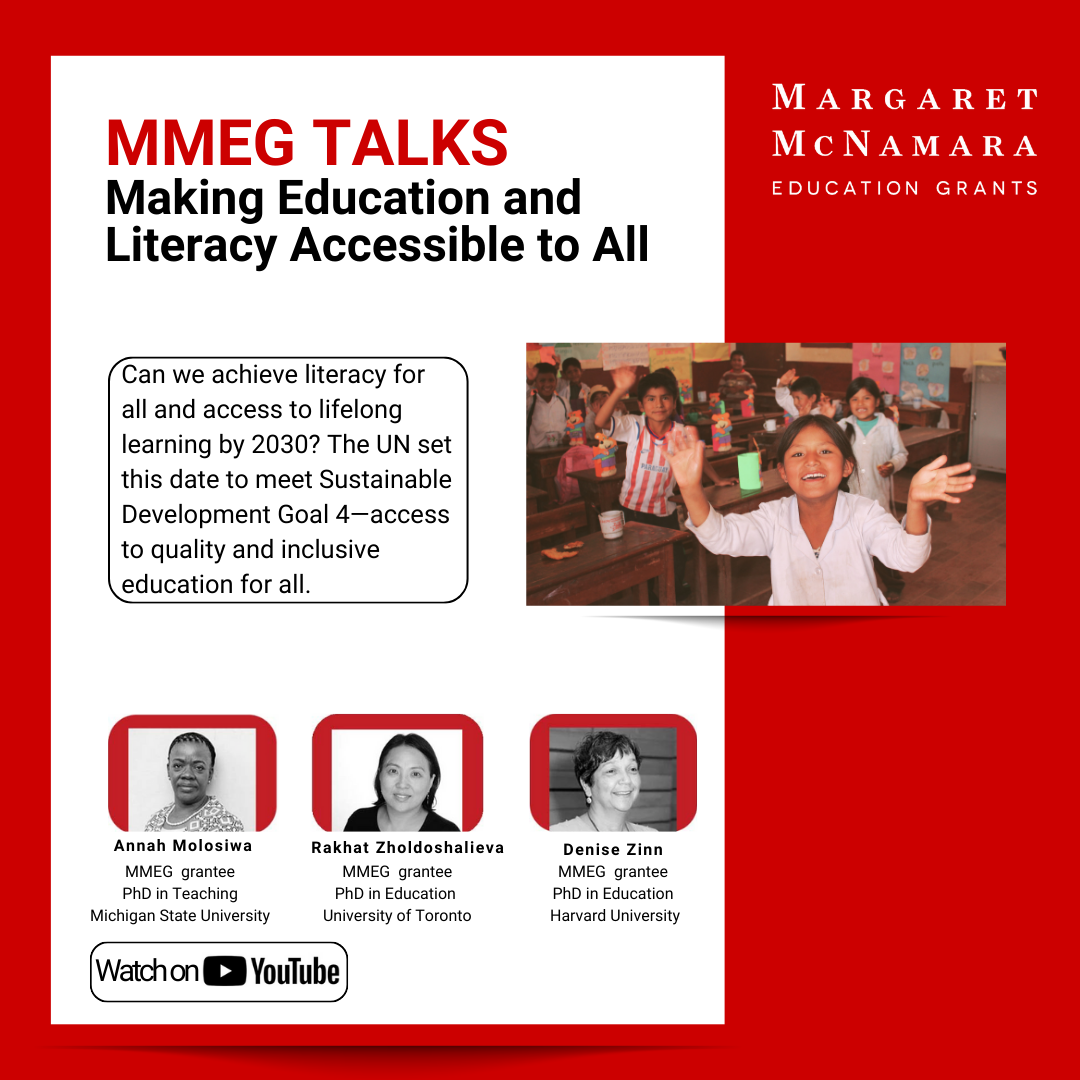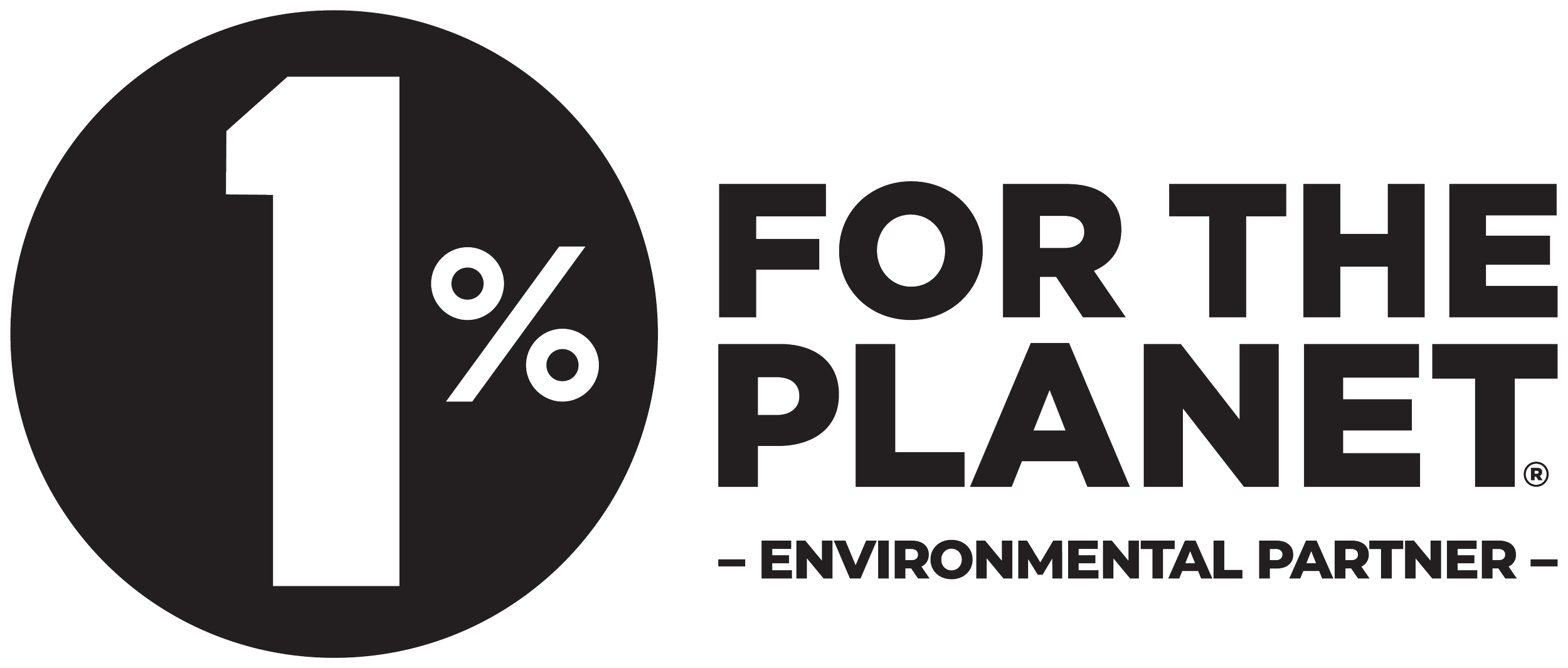This talk took place on October 23, 2024
Watch talk recording here
Literacy is more than just reading and writing; it's a powerful tool that can transform lives and societies. At a recent MMEG Talk, three former grantees discussed the critical role of literacy in addressing global challenges.
Denise Zinn (1996 grantee), Rakhat Zholdoshalieva (2012 grantee), and Anna Molasiwa (2006 grantee) shared insights into the complex issues surrounding literacy, highlighting the need for community engagement, political commitment, and inclusive teaching. Their perspectives shed light on how literacy can empower individuals, strengthen communities, and drive sustainable development.
Speaker Insights
Denise Zinn, former Deputy Vice Chancellor for Learning and Teaching at Nelson Mandela University, highlighted South Africa’s literacy crisis. Despite democratic progress, 55.5% of the population lives in poverty, and only two in ten children can read for meaning by age ten. Denise pointed to a lack of political will, with no national reading strategy update since 2008. In contrast, she referenced Cuba’s successful 1960s literacy campaign, which mobilized communities to boost literacy. As solutions, she suggested establishing “living libraries” in schools, increased teacher training, and dedicated literacy coaches, noting that sustainable progress depends on both political commitment and funding.
Rakhat Zholdoshalieva, leader of the Quality Learning Ecosystems Program at UNESCO, discussed literacy from a global perspective. Connecting literacy to SDG 4, she highlighted the urgency of lifelong learning, as 750 million adults lack basic skills, with women disproportionately affected. Rakhat called for literacy to be seen as a continuum, necessary for both employment and civic engagement. She recommended partnerships between public and private sectors and emphasized the need for literacy-friendly community spaces, stressing that political focus should extend beyond children to support youth and adult literacy as well.
Though technical issues limited her live participation, Anna Molasiwa, retired associate professor of language and literacy education at the University of Botswana, contributed insights on inclusive teaching. She pointed out that standardized methods often overlook diverse learning needs, leaving many children behind. Anna emphasized the importance of tailored teaching and parental involvement, suggesting that family engagement enhances literacy outcomes and builds a supportive learning environment for children.
Key Takeaways
The speakers collectively emphasized four key areas that can drive literacy advancements globally:
Political Will and Funding: Real, long-term solutions for literacy require strong political support and sustained financial investment.
Community and Parental Engagement: Localized, community-driven approaches are more effective in addressing specific literacy challenges, particularly in underserved areas.
Inclusive and Adaptive Teaching: Standardized teaching methods often fall short of addressing diverse learning needs; an inclusive approach to teaching can better support all students.
Lifelong Literacy and Global Goals: Literacy is not merely about reading and writing – it includes the lifelong learning skills crucial for active participation in today’s rapidly changing world.
Literacy as a Pathway to Empowerment
The MMEG Talks highlighted the urgent need for a more inclusive, politically supported approach to literacy. Literacy is a pathway to empowerment, economic opportunity, and social cohesion. Each speaker’s insights underscored that achieving literacy for all is not just about providing resources but also about fostering an environment that prioritizes education, adapts to diverse needs, and engages communities at every level.
Investing in literacy and lifelong learning builds the foundation for resilient, informed, and empowered communities. As the speakers affirmed, when individuals gain literacy, they unlock the potential to create positive change not only for themselves but for generations to come. Through collective, sustained efforts that bridge policy, community, and family support, literacy can become a powerful force for equity and transformation worldwide.
MMEG Talks are organized by MMEG board member Priscilla Linn, who welcomes suggestions for future MMEG Talks topics.




